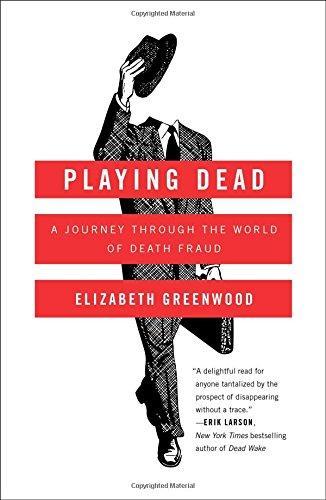🌿 (buffy)² 🌿 reviewed Playing Dead by Elizabeth Greenwood
Thoughts on Playing Dead
3 stars
Playing dead is an exploration of "pseudoside", the act of faking one’s death. Elizabeth Greenwood explores the phenomenon through a variety of lenses: interviewing people who have attempted it, those who help people disappear, and the people involved investigating death fraud.
What struck me was most of the stories were about men. Men seeking escape, reinvention or fortune. Greenwood touches on this toward the end of the book, but only briefly, and I wish there was a deeper consideration of why pseudoside seems so gendered.
For most part, the book kept me engaged right up until the prologue, what frustrated me in the wrap up was Greenwood’s use of a Plato quote: “justice consists in speaking the truth and paying one’s debts.”
It feels like despite going to such great lengths to understand death fraud, Greenwood has overlooked why people actually commit death fraud -- to escape …
Playing dead is an exploration of "pseudoside", the act of faking one’s death. Elizabeth Greenwood explores the phenomenon through a variety of lenses: interviewing people who have attempted it, those who help people disappear, and the people involved investigating death fraud.
What struck me was most of the stories were about men. Men seeking escape, reinvention or fortune. Greenwood touches on this toward the end of the book, but only briefly, and I wish there was a deeper consideration of why pseudoside seems so gendered.
For most part, the book kept me engaged right up until the prologue, what frustrated me in the wrap up was Greenwood’s use of a Plato quote: “justice consists in speaking the truth and paying one’s debts.”
It feels like despite going to such great lengths to understand death fraud, Greenwood has overlooked why people actually commit death fraud -- to escape their debts and obligations. It seems like she missed the opportunity to really interrogate or understand how oppressive debt systems can be. Historically, debt relief was common, and the extreme measures people take to escape financial obligations often reflect systemic pressures more than personal moral failings.
That said, Greenwood never claims to be writing a sociological study of economics and work. It's a book about death fraud and on that level it's good: it’s entertaining, informative, and offers a look at one of society’s more bizarre escape fantasies.

